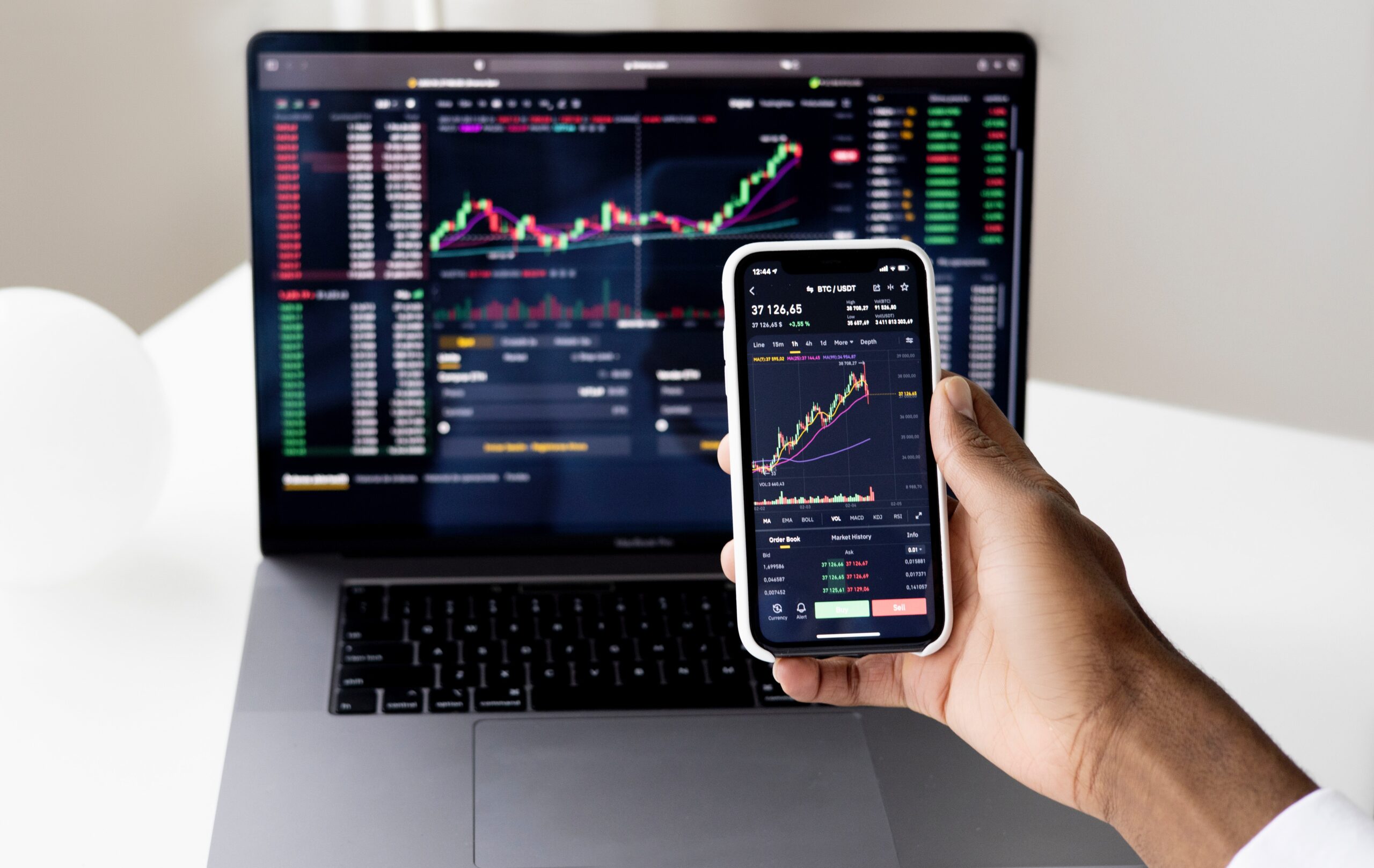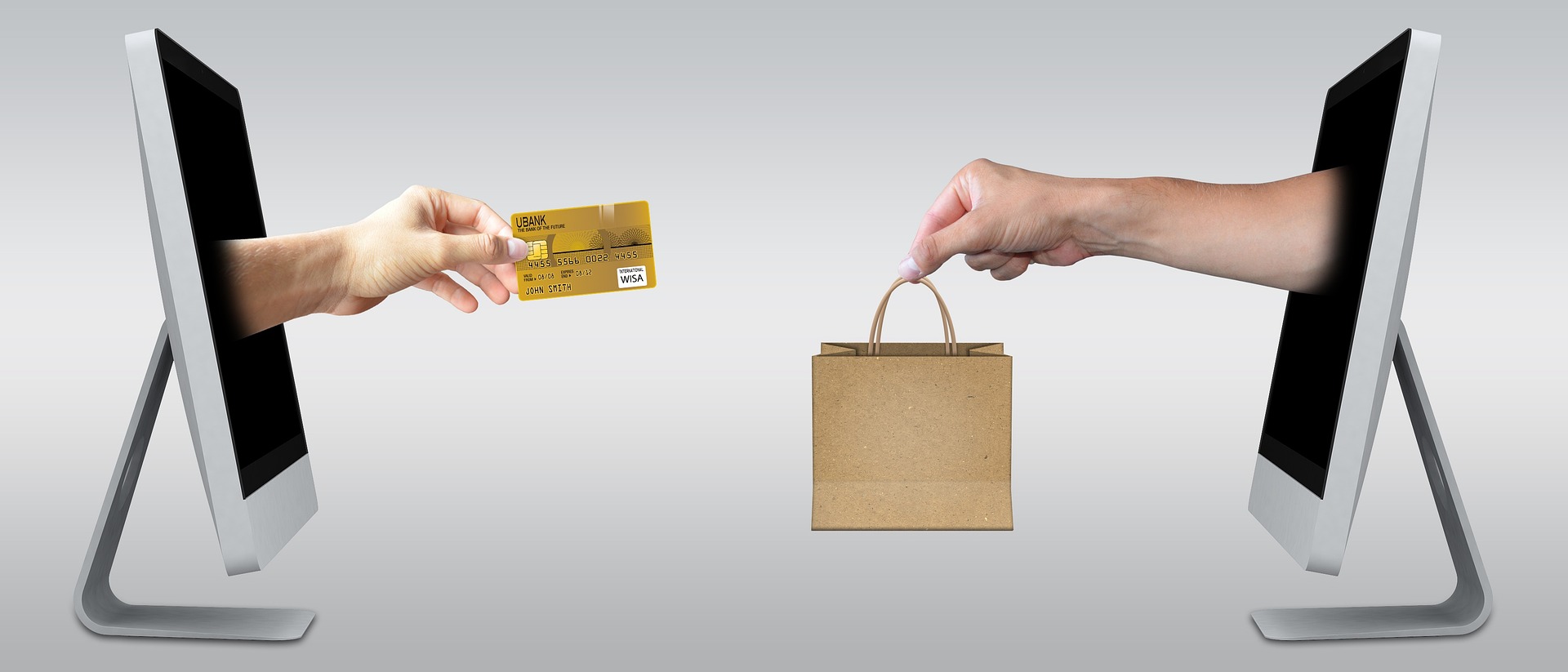How to invest in bitcoin ?
There are many websites and exchanges where you can buy, sell, and trade bitcoin and other cryptocurrencies. Some popular options include:
- Coinbase: Coinbase is a large, well-established cryptocurrency exchange that allows users to buy and sell bitcoin and a range of other cryptocurrencies. It is available in over 100 countries and has a user-friendly interface.
- Binance: Binance is another popular cryptocurrency exchange that offers a wide range of trading options, including spot trading, margin trading, and futures trading. It has a large selection of cryptocurrencies available for trade and is known for its low fees.
- Kraken: Kraken is a cryptocurrency exchange that offers a range of trading options, including spot trading and margin trading. It is known for its security and compliance measures and is available in many countries around the world.
- Bitfinex: Bitfinex is a cryptocurrency exchange that offers spot trading and margin trading. It is popular among advanced traders and has a wide range of trading options and features.
- LocalBitcoins: LocalBitcoins is a peer-to-peer (P2P) exchange that allows users to buy and sell bitcoin directly with each other. It is available in many countries and allows users to choose from a variety of payment methods.
Is bitcoin a good investment ?
Like any investment, investing in bitcoin carries risks and uncertainties. The value of bitcoin has been highly volatile and has fluctuated significantly over time. While it has the potential to provide high returns, it also carries the risk of significant losses. In addition, the regulatory environment for bitcoin and other cryptocurrencies is still evolving, which adds to the uncertainty surrounding these investments.
It is important to carefully consider the risks and potential rewards of investing in it before making any investment decisions. It is also a good idea to diversify your investment portfolio and not to invest more than you can afford to lose. It is recommended to do thorough research and seek the advice of a financial advisor before making any investment decisions.
Read more about Bitcoin here : Everything you want to know about it
Who owns bitcoin ?

Bitcoin is a decentralized digital currency that is not controlled by any individual, company, or government. Anyone can own bitcoin by buying it on a cryptocurrency exchange or through a peer-to-peer transaction with another individual. When you own bitcoin, you are in possession of a private key, which is a unique code that allows you to access and transfer your bitcoin.
It is not possible to determine who owns a particular bitcoin or how many people own bitcoin, as the blockchain is a decentralized and anonymous system. However, it is possible to see the total number of bitcoins in circulation and the overall value of the bitcoin market, which can be found on various websites and market data sources.
Who is the real CEO of bitcoin ? | Who truly made bitcoin ?
As a decentralized and open-source project, bitcoin does not have a traditional CEO or central authority. Instead, the development and maintenance of the bitcoin network is guided by a decentralized community of volunteers and developers who contribute to the project.
Satoshi Nakamoto is the pseudonym used by the person or group of people who created the digital currency bitcoin and wrote its original white paper in 2008. The true identity of Satoshi Nakamoto is unknown, and the individual or group has remained anonymous.
There are many organizations and companies that are involved in the development and promotion of bitcoin, but none of them have ultimate control over the currency or the blockchain. Some well-known organizations in the bitcoin industry include the Bitcoin Foundation, which was formed in 2012 to promote the adoption of bitcoin, and the Bitcoin Core development team, which is responsible for maintaining and updating the software that powers the bitcoin network.
How many bitcoin’s are left ?
There are a total of 21 million bitcoins that will ever be created, according to the protocol of the bitcoin network. As of December 2021, approximately 18.7 million bitcoins have been mined and are in circulation. This means that there are approximately 2.3 million bitcoins left to be mined.
The number of bitcoins that are mined each day varies depending on the mining difficulty, which is adjusted periodically to ensure that the average time to mine a block remains at around 10 minutes. The mining difficulty is adjusted based on the total computing power of the network, so as more miners join the network or the total computing power increases, the mining difficulty will increase to compensate.
It is estimated that the last bitcoin will be mined sometime around the year 2140, although the exact date is uncertain and will depend on various factors, including the total computing power of the network and the rate at which new miners join the network.
Is Bitcoin actual money ?

Bitcoin is a digital currency that is designed to be a medium of exchange for the purchase of goods and services. It uses cryptography for security and is not controlled by any government or financial institution.
Like traditional money, bitcoin can be used to purchase goods and services from merchants and individuals who accept it as a form of payment. It can also be bought and sold on cryptocurrency exchanges, where it can be traded for other currencies, including traditional fiat currencies such as the US dollar or the euro.
However, bitcoin is not considered legal tender in most countries, and its use as a medium of exchange is not as widespread as traditional currencies. In some jurisdictions, bitcoin and other cryptocurrencies may be subject to specific regulations or may be banned entirely.
Whether or not bitcoin is considered “actual money” depends on how it is defined and used in a particular context. Some people consider bitcoin to be a form of money, while others view it more as a speculative investment or a store of value. Ultimately, the question of whether or not bitcoin is “actual money” is a matter of debate and will depend on the specific circumstances and views of the individual or entity using it.
Should i invest in Bitcoin ?
Investing in bitcoin or any other cryptocurrency carries risks and uncertainties, and it is important to carefully consider these risks before making any investment decisions. Some of the risks to consider include:
- Volatility: The value of bitcoin and other cryptocurrencies has been highly volatile and has fluctuated significantly over time. This means that the value of your investment may go up or down significantly in a short period of time, which can result in significant losses or gains.
- Lack of regulation: The regulatory environment for bitcoin and other cryptocurrencies is still evolving, and it is not clear how these assets will be treated by governments and financial institutions in the future. This adds to the uncertainty surrounding these investments.
- Security risks: Cryptocurrencies are vulnerable to cyber attacks, and there have been instances of exchanges and wallets being hacked and funds being stolen. It is important to carefully secure your private keys and to use reputable exchanges and wallets to store your bitcoin.
- Limited acceptance: Cryptocurrencies are not widely accepted as a form of payment, and it can be difficult to find merchants and individuals who will accept them. This limits the use and utility of these assets.
Why crypto is falling ?

It is difficult to predict with certainty why the price of a particular cryptocurrency is falling, as it can be influenced by a wide range of factors. It is important to carefully research and consider the risks and uncertainties associated with investing in cryptocurrencies before making any investment decisions. Main reasons for fall in crypto prices are :
- Market demand: The price of cryptocurrencies is largely determined by market demand, which can be influenced by a variety of factors, including investor sentiment, news and media coverage, and regulatory developments.
- Market supply: The price of cryptocurrencies is also influenced by the supply of the asset. For example, bitcoin has a fixed supply of 21 million coins, and as more coins are mined, the supply decreases. This can affect the price of bitcoin and other cryptocurrencies.
- Competition from other cryptocurrencies: There are many different cryptocurrencies available, and the emergence of new and innovative cryptocurrencies can affect the demand and price of existing ones.
- Regulatory developments: Cryptocurrencies are not widely regulated, and the regulatory environment for these assets is still evolving. Changes in regulations or the introduction of new regulations can affect the demand and price of cryptocurrencies.
- Economic and geopolitical events: Cryptocurrencies can also be affected by economic and geopolitical events, such as changes in interest rates, economic growth, and political instability.
How to get free bitcoins ?
It is important to be aware that there is no such thing as “free” bitcoin, as all bitcoin has value and requires some effort or cost to obtain. It is also important to be cautious when seeking out ways to earn or obtain free bitcoin, as there are many scams and frauds that claim to offer it for free but are actually designed to steal personal information or defraud users. However, some of the more genuine ways to earn free bitcoins are :
- Bitcoin faucets: A bitcoin faucet is a website or app that rewards users with small amounts of bitcoin for completing tasks or visiting the site. These tasks may include completing surveys, watching ads, or playing games.
- Bitcoin mining: Bitcoin mining is the process of verifying transactions on the bitcoin network and adding them to the blockchain. Miners who contribute their computing power to the network are rewarded with a small amount of bitcoin for their efforts. However, mining requires specialized hardware and a lot of electricity, so it may not be a practical option for most people.
- Participating in bitcoin-related activities: Some websites or organizations may offer free it as a reward for participating in certain activities, such as completing surveys or promoting the use of bitcoin.
- Receiving bitcoin as a gift or payment: You may also be able to obtain free bitcoin by receiving it as a gift or payment from someone else. For example, you might receive bitcoin as a tip for providing valuable content or services online.
How to sell bitcoin for cash ?
- Sell bitcoin on a cryptocurrency exchange: One option is to sell your bitcoin on a cryptocurrency exchange, such as Coinbase or Binance. To do this, you will need to create an account on the exchange, transfer your bitcoin to the exchange’s digital wallet, and then place a sell order for your bitcoin. The exchange will match you with a buyer, and you will receive cash in your account or via a wire transfer.
- Sell bitcoin to a peer-to-peer (P2P) marketplace: Another option is to sell your bitcoin on a P2P marketplace, such as LocalBitcoins or Paxful. These platforms allow you to sell bitcoin directly to other individuals, often in exchange for cash or a cash deposit into your bank account.
- Sell bitcoin to a bitcoin ATM: Some cities have bitcoin ATMs that allow you to sell bitcoin in exchange for cash. To use a bitcoin ATM, you will need to locate one near you, scan your bitcoin wallet’s QR code, and then insert cash into the ATM to receive your funds.
- Sell bitcoin to a bitcoin broker: You can also sell your bitcoin to a bitcoin broker, who will act as a middleman to facilitate the sale. The broker will purchase your bitcoin and provide you with cash or a cash deposit in exchange.
Before selling your bitcoin, it is important to carefully consider your options and choose a method that is safe, secure, and convenient for you. It is also important to be aware of any fees or charges that may apply when selling bitcoin.
How to mine bitcoin at home ?

- Set up a bitcoin wallet: The first step in mining bitcoin at home is to set up a bitcoin wallet, which is a digital wallet that allows you to store, send, and receive bitcoin. You can choose from a variety of wallet options, including software wallets, mobile wallets, and hardware wallets.
- Choose and purchase mining hardware: To mine bitcoin, you will need specialized hardware known as an ASIC (application-specific integrated circuit) miner. These miners are designed specifically for the purpose of mining bitcoin and are much more efficient than general-purpose computers. There are many different types of ASIC miners available, and you will need to choose one that is suitable for your needs and budget.
- Set up a bitcoin mining software: Once you have your mining hardware, you will need to install a bitcoin mining software, such as CGMiner or BFGMiner. This software will allow you to connect your miner to the bitcoin network and start mining.
- Join a mining pool: To increase your chances of finding a block and receiving a reward, you may want to join a mining pool, which is a group of miners who combine their computing power to increase the chances of finding a block.
Mining bitcoin at home can be a complex and expensive process, and it requires a significant amount of electricity and specialized hardware. It is not a practical option for most people and is generally only suitable for those with a strong technical background and access to low-cost electricity. It is important to be aware of the risks and costs associated with mining bitcoin.
Can a beginner buy bitcoin ?
Yes, buying bitcoin is a relatively simple process. As a beginner, you will need to:
- Choose a bitcoin exchange or broker (Popular are Coinbase, Binance and Kraken)
- Create an account
- Deposit funds
- Place an order
Can you get rich from buying bitcoin ?
Although some people have become rich by investing in bitcoin but most of the people have lost money here. It is possible to make a profit by buying and selling it, but it carries risks and uncertainties. Investing in bitcoin should be done as part of a diversified investment portfolio and only with money that you can afford to lose. It is important to carefully consider the risks and potential rewards of any investment and to seek the advice of a financial advisor before making any investment decisions.
When was the last time Bitcoin was $1 ?
Bitcoin was worth less than $1 for most of its early history, and it did not surpass the $1 mark until February 9, 2011. On that day, the price of bitcoin reached a high of $1.06, according to CoinDesk’s Bitcoin Price Index (BPI).
Since then, the price of bitcoin has fluctuated significantly, reaching highs of over $64,000 in April 2021 and then falling back down to around $16,000 at the time of writing.
Unique features of Bitcoin ?
- Decentralization: It is decentralized, meaning that it is not controlled by any government or financial institution. Instead, it is based on a decentralized ledger technology called the blockchain, which allows for the secure and transparent transfer of bitcoin between users without the need for intermediaries.
- Limited supply: There is a limited supply of bitcoin, with a maximum of 21 million coins that will ever be created. This limited supply can affect the demand and value of bitcoin, as the increased demand for a fixed supply of coins can drive up the price.
- Pseudonymity: It’s transactions are pseudonymous, meaning that they are not tied to the real-world identities of the users involved. This can provide a degree of privacy for users, as the blockchain does not contain personal identifying information.
- Security: It uses advanced cryptographic techniques to secure its transactions and prevent fraud. These techniques make it difficult for hackers to steal it or manipulate the blockchain.
- Global accessibility: It is a global digital currency that can be accessed from anywhere in the world with an internet connection. This makes it a potentially useful tool for cross-border transactions and for people in countries with unstable or restrictive financial systems.
Is bitcoin open source
Yes, Bitcoin is an open-source software project. This means that the source code is publicly available and anyone can view or contribute to the codebase. The Bitcoin software is released under the MIT license, which allows users to modify and distribute the software freely. This open-source model allows for transparency and community participation in the development of the software, which has played a key role in the success of Bitcoin.

Also read : Non fungible tokens (NFT’s)
Also read : Blockchain technology explained : Its benefits
Also read : Web 3.0 : The new generation web
Also read : How to start learning coding










